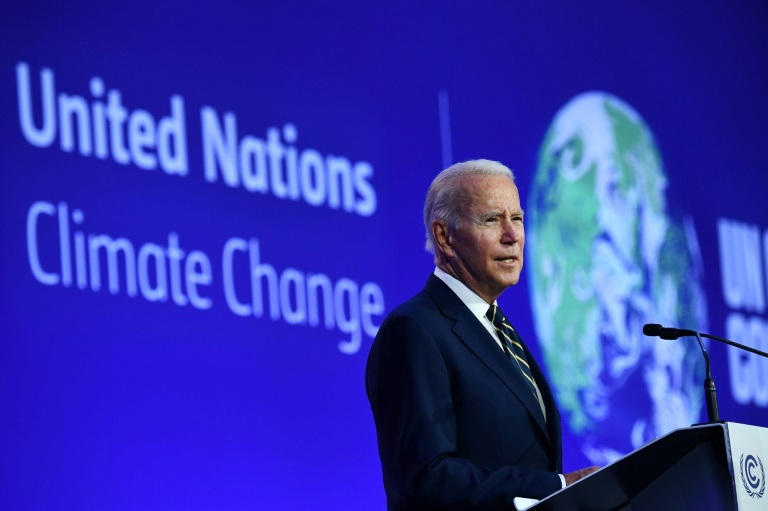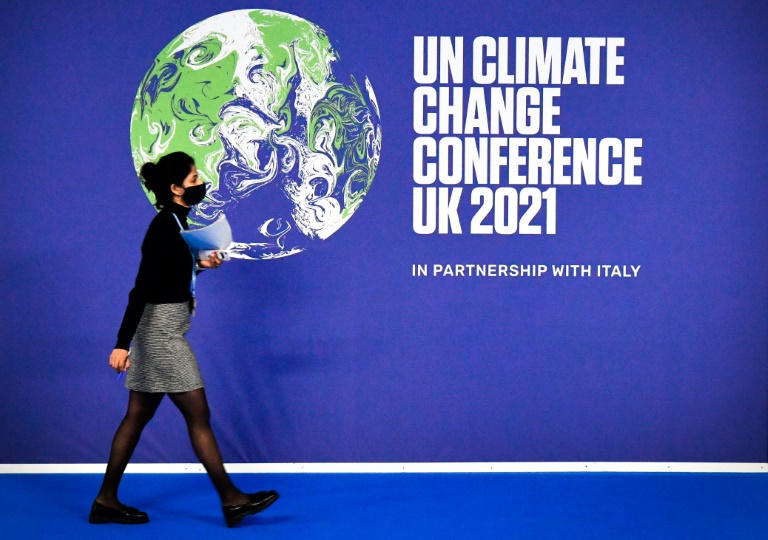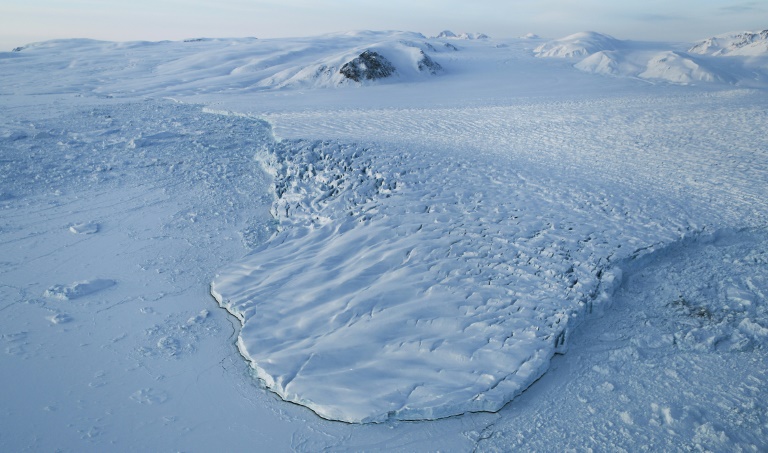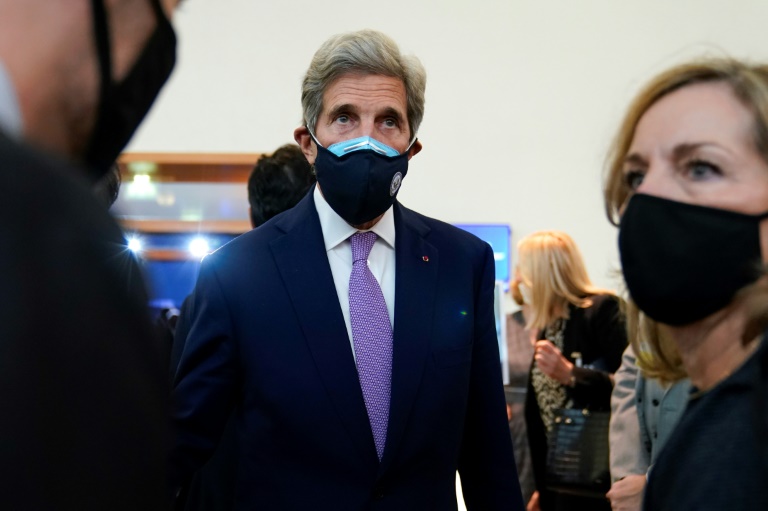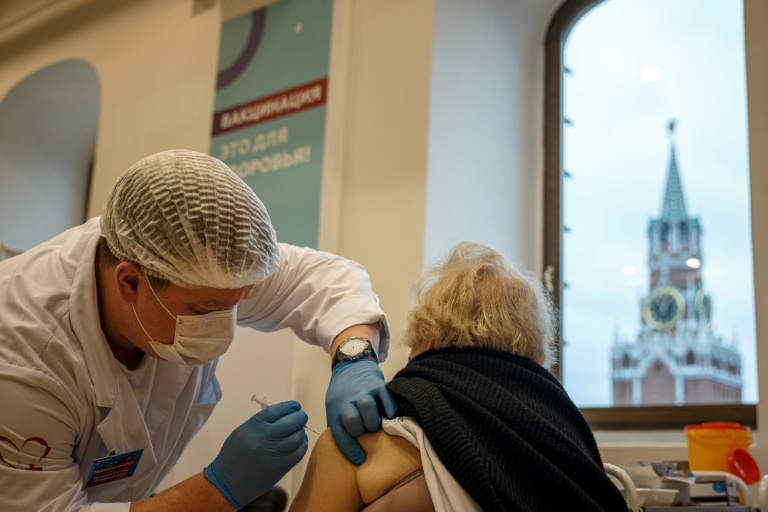World leaders urged to 'save humanity' at climate summit
World leaders must act to “save humanity”, UN chief Antonio Guterres said Monday as they met for the historic COP26 climate summit with code-red warnings from scientists ringing in their ears.
More than 120 heads of state and government are gathering in Glasgow for a two-day summit at the start of the UN’s COP26 conference, which organisers say is crucial for charting humanity’s path away from catastrophic global warming.
“It’s one minute to midnight… and we need to act now,” British Prime Minister Boris Johnson said to start proceedings on an at-times chaotic opening day.
COP26 is being billed as vital for the continued viability of the Paris Agreement, which countries signed in 2015 by promising to limit global temperature rises to “well below” two degrees Celsius, and to work for a safer 1.5C cap.
With a little over 1C of warming since the Industrial Revolution, Earth is being battered by ever more extreme heatwaves, flooding and tropical storms supercharged by rising seas.
US President Joe Biden, addressing delegates, said that the current age of climate disaster was “an inflection point in world history”.
Pressure is on governments to redouble their emissions-cutting commitments to bring them in line with the Paris goals, and to stump up long-promised cash to help developing nations green their grids and protect themselves against future disasters.
“It’s time to say: enough,” Guterres said.
“Enough of brutalizing biodiversity. Enough of killing ourselves with carbon. Enough of treating nature like a toilet. Enough of burning and drilling and mining our way deeper. We are digging our own graves.”
– ‘Blah, blah’ –
Thousands of delegates queued around the block to get into the summit on Monday, negotiating airport-style security in the locked-down city centre.
On nearby streets, protesters began lively demonstrations to keep up the pressure.
Activists from Oxfam communicated their displeasure through music, with a Scottish pipe band, the “COP26 Hot Air Band”, wearing masks that caricatured world leaders.
Johnson spoke of the “uncontainable” public anger if the conference falls flat.
Echoing 18-year-old climate campaigner Greta Thunberg — who is in Glasgow with thousands of other protesters — he urged the summit against indulging in “blah blah blah”.
If the leaders “fluff our lines or miss our cue”, generations as-yet unborn “will not forgive us”, the prime minister said.
“They will know that Glasgow was the historic turning point when history failed to turn.”
Biden said that the response to the climate crisis should be seen as an opportunity for the world’s economies.
“Within the growing catastrophe I believe there’s an incredible opportunity — not just for the United States, but for all of us,” he told delegates.
– No Xi, Putin –
The G20 including China, India and Western nations committed on Sunday to the Paris goal of limiting global warming to 1.5C.
They also agreed to end funding for new coal plants abroad without carbon capturing technology by the end of 2021.
But the precise pathway to 1.5C was left largely undefined and campaigners expressed disappointment with the group, which collectively emits nearly 80 percent of global carbon emissions.
Preparations for the high-level summit had been dampened by a number of high-profile no shows.
Both Chinese President Xi Jinping — who has not left his country during the Covid-19 pandemic — and Russia’s Vladimir Putin will not be in Glasgow.
And Monday saw Turkish President Recip Tayyip Erdogan cancel his appearance, for unspecified reasons.
Observers say the Glasgow gathering, which runs until November 12, will be tough going.
Most nations have already submitted their renewed emissions cutting plans — known as “nationally determined contributions”, or NDCs — in advance of COP26.
But even these current commitments — if followed — would still lead to a “catastrophic” warming of 2.7 Celsius, according to the UN.
– Eyes on India –
China, by far the world’s biggest carbon polluter, has just submitted to the UN its revised climate plan, which repeats a long-standing goal of peaking emissions by 2030.
US-China tensions were simmering Monday after Biden’s national security adviser Jake Sullivan labelled Beijing among the “significant outliers”.
He added China “will not be represented at leader level at COP26 and… has an obligation to step up to greater ambition as we go forward.”
India meanwhile has yet to submit a revised NDC, a requirement under the Paris deal.
Modi’s address is keenly anticipated, though it was not clear if it would contain new climate pledges.
Another pressing issue is the failure of rich countries to deliver $100 billion annually to help climate vulnerable nations adapt to climate change.
The goal — meant to be delivered last year — has been postponed to 2023, exacerbating tensions between richer nations, responsible for global warming, and those poorer countries who are the victims of its effects.
The addresses from well over 100 world leaders will be closely scrutinised in particular by young activists who travelled to Scotland by train.
“As citizens across the planet, we urge you to face up to the climate emergency,” they said in an open letter signed by Thunberg among others, which had gathered over a million signatures.
“Not next year. Not next month. Now.”

